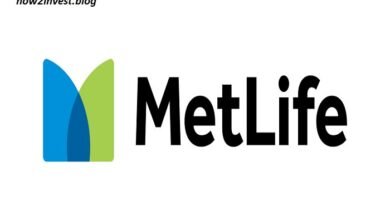What Is An Investable Asset

Only some assets offer suitable or desirable returns for the risk involved when building an investment portfolio. The concept of investable assets clarifies which opportunities fit the criteria to grow your capital potentially. Simply having worth or monetary value alone does not necessarily make something investable practically. This article reviews the definition and essential characteristics of investable assets.
You’ll learn the factors that make an asset investable, from sufficient liquidity to availability and measurable value. With these insights, you can better evaluate possible investments on their merits as vehicles for appropriate risk-adjusted returns.
The Essence of What Is An Investable Asset

In the realm of finance, an investable asset is something that has the potential to generate returns over time. These assets can come in various forms, from traditional options like stocks and bonds to alternative investments such as real estate and commodities. The essence of an investable asset lies in its ability to preserve and increase value, making it an attractive option for individuals seeking to build wealth.
Types of Investable Assets
Equities, or stocks, represent ownership in a company. Investing in equities provides an opportunity to participate in a company’s success through capital appreciation and dividends.
On the other hand, bonds are fixed-income securities that offer regular interest payments and a return of principal at maturity. They are known for providing stability to an investment portfolio.
Real estate is a tangible asset, including residential, commercial, or industrial. Investing in real estate can provide both rental income and capital appreciation.
Commodities encompass physical goods like gold, silver, or oil. Investing in commodities can diversify a portfolio and act as a hedge against inflation.
In recent years, cryptocurrencies like Bitcoin and Ethereum have emerged as a new asset class. These digital assets offer decentralization and the potential for high returns but come with higher volatility.
Characteristics of Investable Assets
The characteristics of investable assets are paramount to making informed investment decisions. Each type of asset possesses unique traits that can impact its performance and suitability for different investors.
Liquidity and Marketability
Investable assets vary in liquidity, referring to how easily they can be bought or sold in the market. Highly liquid assets like stocks can be quickly traded, while real estate may take longer to sell.
Risk and Return Profile
Different assets come with varying levels of risk and potential return. Generally, higher-risk assets, such as stocks or cryptocurrencies, have the potential for higher returns and volatility.
Income Generation
Some assets, like bonds and real estate, generate regular income through interest payments or rental yields. This income component can be a crucial aspect of an investment strategy, especially for income-oriented investors.
Diversification Opportunities
Diversification involves spreading investments across different asset classes to reduce risk. Investable assets allow investors to create diversified portfolios, balancing risk and reward.
Regulatory Environment
The regulatory environment can significantly impact certain assets. For example, government policy or regulation changes can influence the performance of real estate or particular industries.
Considerations for Investing in Assets
As you embark on your investment journey, several vital considerations can guide you in making sound decisions. Whether you are a seasoned investor or a beginner, these principles apply universally.
Define Your Investment Goals and Risk Tolerance
Before diving into the world of investable assets, defining your investment goals and assessing your risk tolerance is crucial. Are you looking for long-term growth, income, or a combination? Understanding your risk tolerance ensures that your investment strategy aligns with your financial objectives.
Conduct Thorough Research.
Knowledge is power in the world of investing. Take the time to research different types of investable assets, their historical performance, and the factors that influence their prices. Informed decisions are more likely to lead to successful outcomes.
Stay Updated on Market Trends
Markets are dynamic and influenced by various factors such as economic indicators, geopolitical events, and technological advancements. Staying informed about market trends empowers you to adapt your investment strategy to changing conditions.
Diversify Your Portfolio
The age-old adage “don’t put all your eggs in one basket holds in investing. Diversifying your portfolio across different asset classes can help mitigate risk and enhance the potential for stable returns.
Monitor and Adjust Your Portfolio
Regularly monitor your investment portfolio and be prepared to make adjustments when necessary. Economic conditions, market trends, and personal financial goals may evolve, requiring a flexible approach to portfolio management.
Challenges in Investable Assets
While investable assets offer opportunities for wealth creation, challenges can arise. Understanding and addressing these challenges is essential for maintaining a resilient investment strategy.
Market Volatility
Financial markets are inherently volatile, and asset values can fluctuate based on many factors. Investors need to remain calm during market fluctuations and avoid making impulsive decisions.
Economic Downturns
Economic downturns can impact the performance of various investable assets. Having a long-term perspective and a well-diversified portfolio can help weather the storms of economic uncertainties.
Regulatory Changes
Changes in regulations can affect the profitability and viability of certain investments. Stay informed about regulatory developments that may impact your chosen assets, and be prepared to adjust your strategy accordingly.
Technological Disruptions
In the age of rapid technological advancements, some industries may face disruptions that can influence the performance of related assets. Stay attuned to technological trends to anticipate potential impacts on your investments.
Inflationary Pressures
Inflation can erode the purchasing power of money over time. Consider assets that historically have acted as hedges against inflation, such as real estate or certain commodities.
Conclusion
What an investable asset is is paramount for crafting a resilient investment portfolio. The diverse landscape of investable assets offers opportunities and challenges, from equities and bonds to real estate and cryptocurrencies. Considering factors like liquidity, risk, and income generation, investors can navigate the complexities and make informed decisions.
Embracing diversification and staying vigilant amid market dynamics ensures a strategic approach to achieving appropriate risk-adjusted returns in the ever-evolving world of investments.



